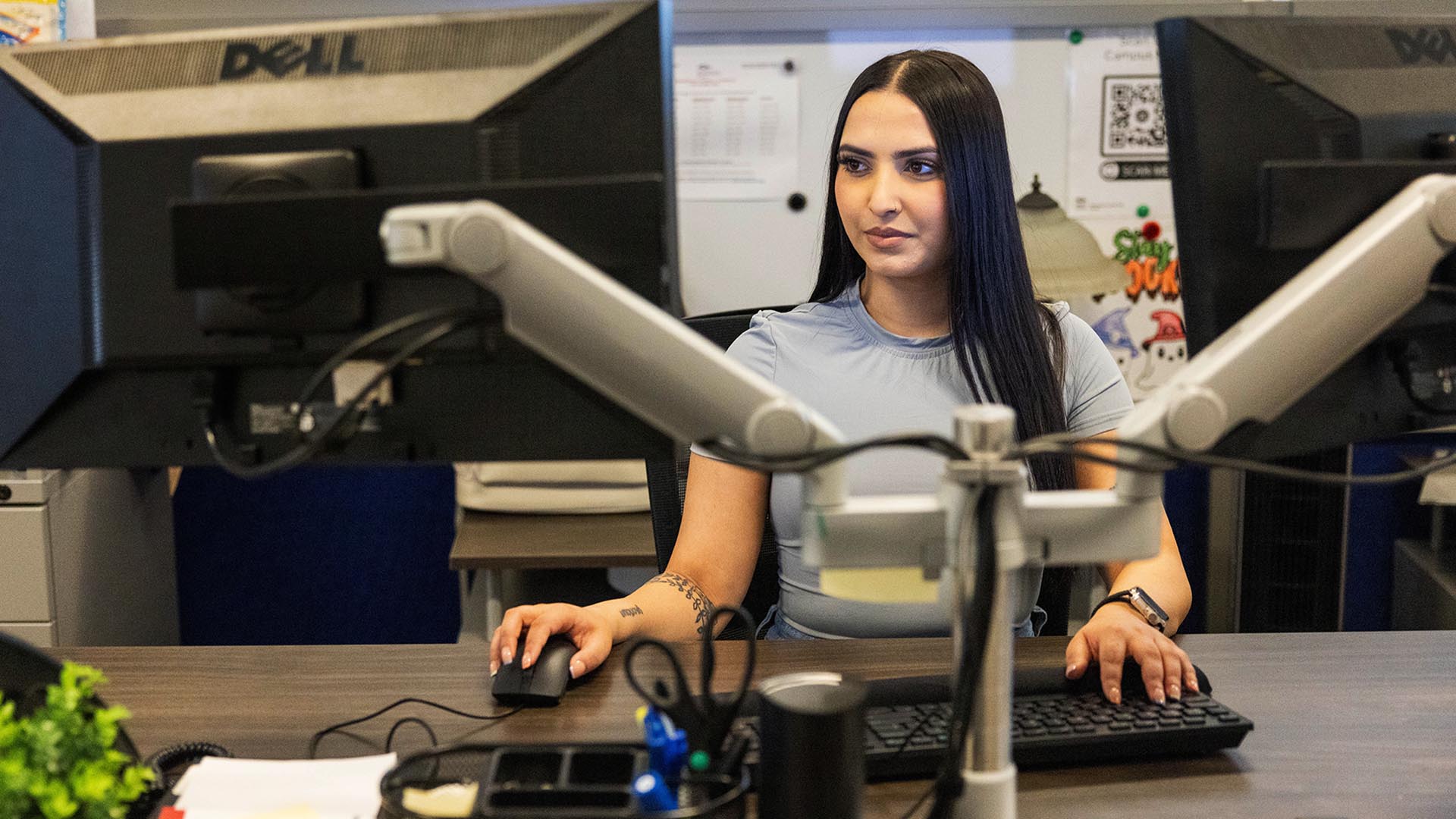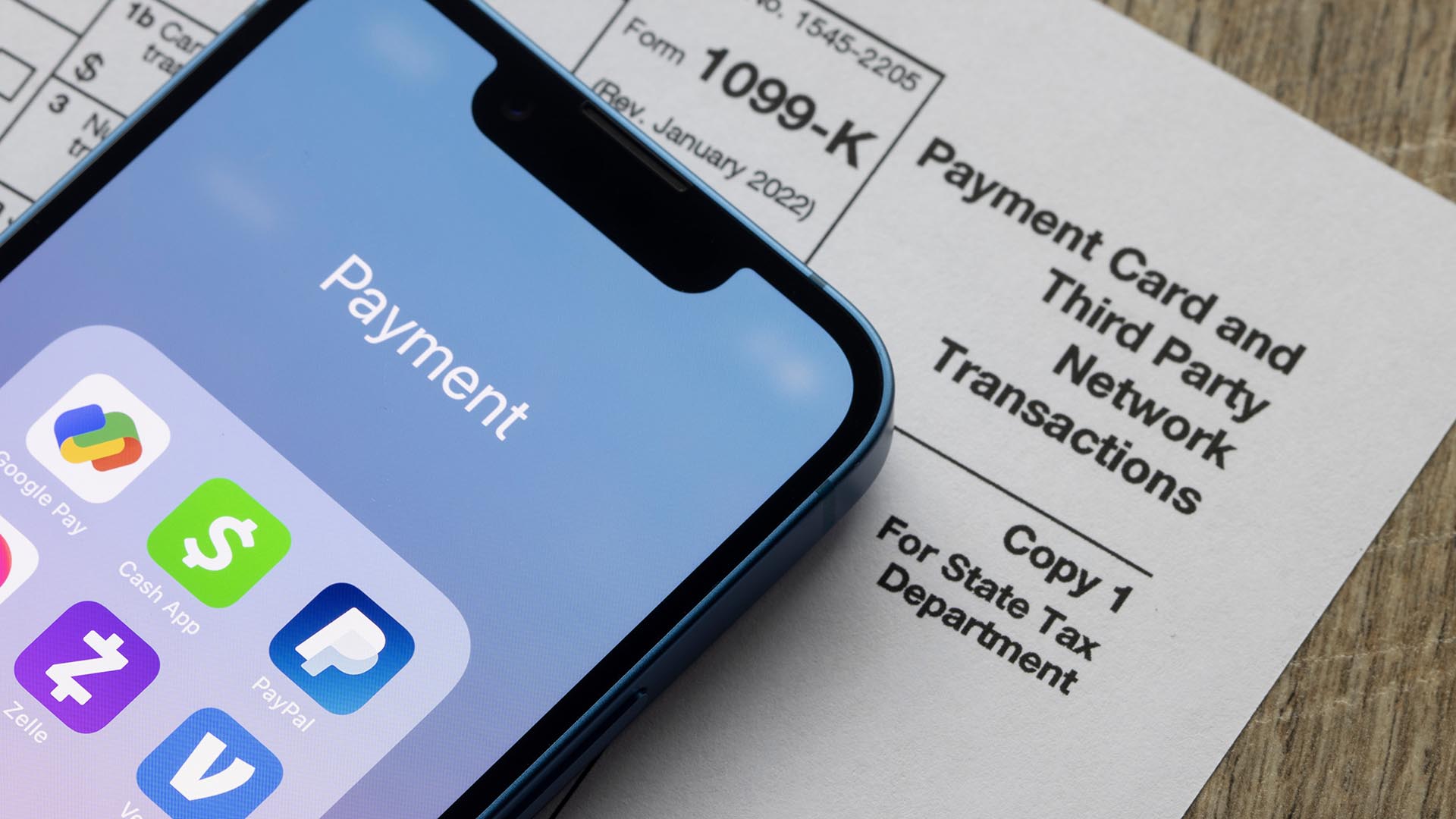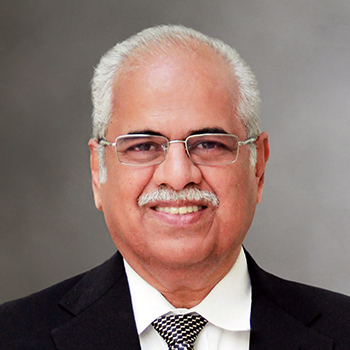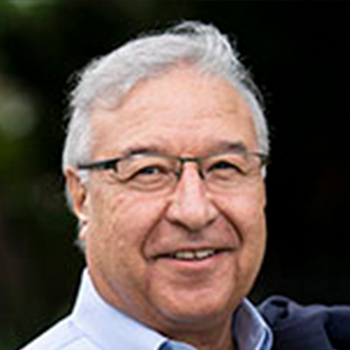Student employment works for students, employers
Alumni build on student employment skills in the workplace, while research demonstrates academic and retention benefits.
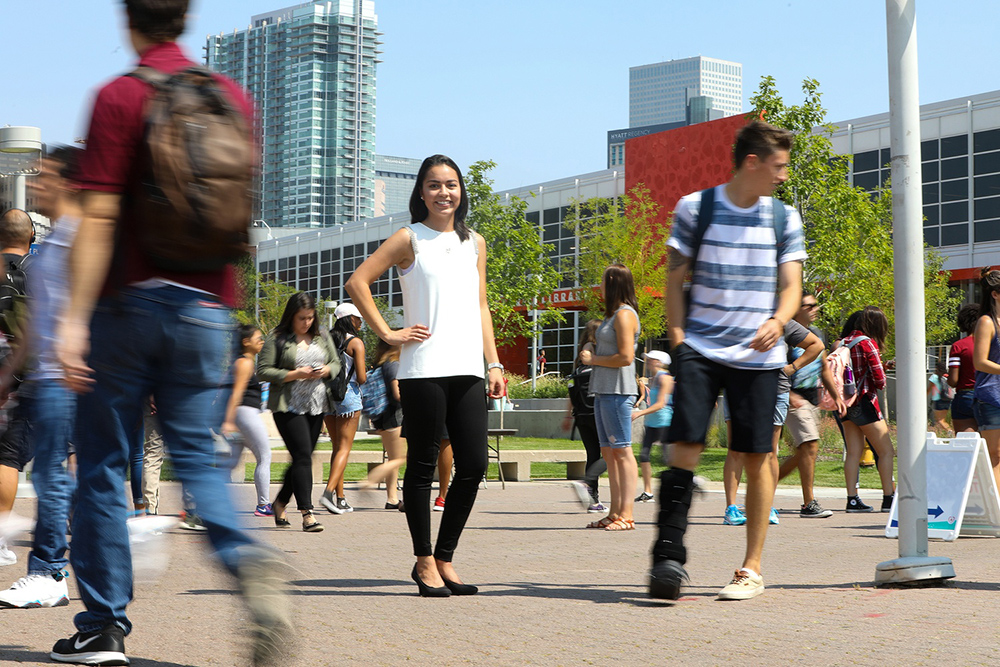
When Daisy Rocha Vasquez was in elementary school, she asked her parents if she could sign up for summer school. Not because she was falling behind but because she wanted to get ahead. By the time she was a teenager, she was teaching business and computer skills to her peers and neighbors through a local nonprofit.
Rocha Vasquez has always had an appetite for learning and an even bigger desire to help people. It’s no surprise, then, that the middle child of nine siblings worked throughout college or that each of the seven jobs she held included working with people extensively.
She got her start as a student employee in the Office of Admissions and worked her way into a leadership role in the Urban Leadership Program, and she also worked as an intern for Girls Inc. of Metro Denver; a student ambassador for Microsoft Windows; a Macy’s associate; a Coors Field usher; and a weekend babysitter. The skills and work ethic she developed as a student landed her a job at the Denver Metro Chamber of Commerce, where she earned a promotion after just seven months on the job.

As special-events coordinator at the Chamber of Commerce, Rocha Vasquez is tasked with managing the details of 40-plus events per year, often serving as the first point of contact. In addition to gaining applicable work experience as a student, Rocha Vasquez cultivated relationships that helped her find her job and honed communication skills that made her confident in the interview process.
“When I was at the front desk at the Chamber of Commerce, a lot of those skills I learned on campus I saw come to life, and I thought, ‘I’m doing things I did in school that I didn’t realize I’d use so much in the real world,’” Rocha Vasquez said. “I learned that a lot of the skills that I had were transferable from job to job.”
Haleigh Shipley took a similar route at MSU Denver, working in a call center and other outside jobs before taking a student leadership role in Human Resources. She organized employee-orientation sessions, gave campus tours, drafted a monthly newsletter and coordinated a leadership retreat and two wellness fairs.

Shipley credits that experience with helping her transition from a shy student to a versatile employee with a large professional network. Including her student employment, she’s worked at three colleges and universities and is coordinator of outreach and engagement for the College of Arts & Media at the University of Colorado Denver.
“When you can have directors and other leaders of departments give you a glowing reference for a job, that goes a long way,” Shipley said.
Assistant Director of Human Resources Angela Bender, one of Shipley’s former supervisors, sees student employment as a critical and mutually beneficial experience.
“From my experience in higher education, it seems like we (MSU Denver) have a lot of student employees, and I think we utilize students well to support offices around the University. Our offices would not survive without our student employees,” Bender said.
Close to 1,000 MSU Denver students are working on campus in fall 2017.
Beyond honing valuable skills and earning paychecks, student employment can also contribute to superior academic performance. Research by the National Center for Education Statistics has shown that students who work one to 15 hours per week earn higher GPAs than students who don’t work.
At MSU Denver specifically, students who are active on campus have proven to earn better grades and are more likely to stay in school. In the 2016-17 academic year, MSU Denver students who participated in student-engagement programs earned a median cumulative GPA of 3.29 and returned to school at a rate of 88 percent. Their counterparts had a median 2.95 GPA, and only 71 percent returned to campus this fall.
“For hiring purposes, you can get the graduate who has no work experience, or you can get someone with soft skills, like problem resolution, listening, critical thinking and attention to detail,” Bender said. “Those students are getting work experience in addition to what’s in the classroom, and those extra skills are so important in a work environment.”



